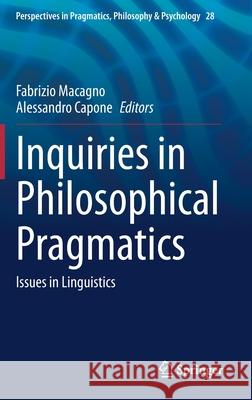Inquiries in Philosophical Pragmatics: Issues in Linguistics » książka
topmenu
Inquiries in Philosophical Pragmatics: Issues in Linguistics
ISBN-13: 9783030566951 / Angielski / Twarda / 2021 / 252 str.
Inquiries in Philosophical Pragmatics: Issues in Linguistics
ISBN-13: 9783030566951 / Angielski / Twarda / 2021 / 252 str.
cena 361,42
(netto: 344,21 VAT: 5%)
Najniższa cena z 30 dni: 346,96
(netto: 344,21 VAT: 5%)
Najniższa cena z 30 dni: 346,96
Termin realizacji zamówienia:
ok. 16-18 dni roboczych.
ok. 16-18 dni roboczych.
Darmowa dostawa!
Kategorie BISAC:
Wydawca:
Springer
Seria wydawnicza:
Język:
Angielski
ISBN-13:
9783030566951
Rok wydania:
2021
Wydanie:
2021
Numer serii:
000471011
Ilość stron:
252
Waga:
0.54 kg
Wymiary:
23.39 x 15.6 x 1.6
Oprawa:
Twarda
Wolumenów:
01
Dodatkowe informacje:
Wydanie ilustrowane











